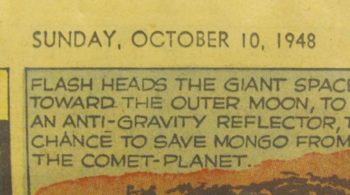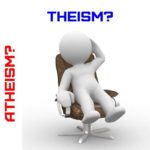The Car-Universe Without A Motor, part 7: The “Darks”
There are three things in current physics that get the adjective “dark” slapped on them. “Dark matter,” “dark energy,” and “dark flow.” Let’s for this post call them the “darks.”
In each case, the adjective “dark” is basically signaling, “There’s something unusual or unknown or mysterious about this substance.” The darks are not called what they are because they’re actually dark, nor not even because they are invisible. Dark matter and dark energy are invisible, but dark flow is a movement of matter that can be directly observed (if those observations are correct).
Dark matter I talked about more that I probably needed to last week. It’s invisible non-reactive matter that nobody has ever directly observed even though its supposed to be everywhere. Dark matter provides extra gravitational force that allows galaxies to spin as they are observed to spin and remain in clusters–since there is not enough normal matter to provide sufficient gravity to do that.
Dark energy is a repulsive force that has been observed via a measurement of the distance of far-away galaxies (via the light of type IA supernovas, which are predictably bright). These galaxy measurements were made because cosmologists wanted to know how fast the expansion of the universe is slowing down (which they assumed gravity was making it do)–and to their surprise, what they observed is an expansion of the universe that seems to be speeding up. That should not happen, because the only long-distance force that shapes the universe, gravity, only draws matter together and never repels it.
Sorry, old science fiction fans–Flash Gordon, which often featured anti-gravity, made up a force that doesn’t exist  (unless we count “dark energy”).
(unless we count “dark energy”).
So some form of energy must be causing the expansion of the universe. Hence, dark energy. This is also called the “Cosmological Constant” and “vacuum energy.” I was prepared to give an overview of why these names get applied to dark energy for this post, but decided perhaps I should forgo a full explanation for sake of brevity.
The thing to note is that the standard way of thinking about the universe emerging on its own from the Big Bang does not work without the insertion of this force. Yet this force has no real explanation. Calculations based on quantum mechanics indeed are able to assign a force to empty space (“vacuum energy”), but the size that quantum mechanics would give such a force is only about 100,000,000,000,000,000,000 (i.e. 10^20) times larger than the actual observed measurement of dark energy. Neil deGrasse Tyson called this, “The worst theoretical prediction in the history of physics.”
Yet, even though the prediction was horrible, the energy has to come from somewhere for the Big Bang model to work. Note that it’s not unthinkable for scientists to believe that some unknown physics must be a work, physics we (the human race) will eventually figure out. There are hypothetical approaches to physics (including String Theory) that might allow for dark energy–but none of them do so in a “natural” way (natural in that the property flows from simple causes, without any apparent “fine tuning”).
I don’t want to beat up scientists for focusing on what they know and hoping what they don’t know will eventually be figured out. That’s a method scientists have used in the past with success.
But note that the energy in dark energy is believed to represent so much force in the universe (so much “mass-energy”–remember that mass and energy can be interchanged according to Relativity), that this energy is the majority of all that exits in the universe. Roughly 5% of the universe is believed to be regular matter and energy. About 27 percent is dark matter and 68% is dark energy. So in total, 95% of the substance of the universe is unexplained by current physics.
Please allow me to repeat that: ninety-five percent of the universe cannot be measured or observed directly in the accepted model of our universe and there aren’t even any satisfactory hypotheses that fully explain these phenomena. 95% unexplained! You’d think that scientists would react to this reality with a strong sense of embarrassment and an admission that something is seriously wrong. Some do react that way. But many act as if this isn’t a problem at all.
I believe I can explain why they aren’t concerned by looking at the third of our “darks,” dark flow.
Dark flow stems from an observation that even though all the motion of galaxies in deep space ought to cancel one another out (since these motions are believed to be random) so that no particular direction is favored, yet, in fact, a measurement first taken in 2008 suggests that more stars are moving towards the constellations of Centaurus and Hydra than any other direction. Why?
This actually has several possible explanations that may or may not require new physics, from gravitational pull of something beyond what we can see in the universe (which is thought to have started its gravitational pull very early in the history of the universe, before it expanded out of sight, which does not require new physics) to the influence of a parallel universe (which requires new physics, but based on something we’ve previously observed–a universe). These hypotheses may not be true, but they at least make some sense. And the flow, or movement of galaxies itself, is quite visible for sensitive instruments (assuming they are taking accurate measurements and the flow is really there).
But dark flow is not actually accepted by most theoretical physicists and cosmologists. The idea has been strongly challenged as flawed and the proof that was observed has been questioned. Which is OK for scientists to do–this is a newly observed phenomena and from a scientific point of view it really should be challenged to ensure that it’s real. And there have in fact been some oddities in the history of the measurement of dark flow.

Flash says anti-gravity is REAL. 🙂
However, I think I see a pattern of behavior here that goes beyond any oddities in measurement. I don’t recall the “discovery” of dark energy being challenged as much when the idea was invented in the 90’s (though perhaps it was and I didn’t know about it). If that’s true, I think this can be explained:
Dark energy does not violate any unspoken or spoken paradigms of modern science. Dark flow does.
Modern science expects to find new physics and so evidence that new physics must exist (in their minds) is pretty easy to accept. Welcome even. Even though there isn’t any even half-way certain explanation of why dark energy is what must be to show effects that are the opposite of gravity.
In contrast to dark energy, the the third of our “darks” challenges the idea that the universe should be uniformly random. And that idea is part of the paradigm of how scientists think. It’s not peripheral, like the idea that some particles and forces might exist that our scientific methods cannot detect. It’s central–the idea that all parts of the universe are essentially the same, that no particular part is objectively special–that’s a fundamental part of how scientists think.
Many people have pointed out to me at various times that science is self-correcting. Yes, in general, that’s true. But most scientists do have a paradigm that guides them. That paradigm allows for changes, but in reality, only in certain areas.
Scientists are much more accepting of changes that are allowed for in their paradigm than changes that aren’t. Not every cosmologist or theoretical scientist is exactly the same, of course, but in general, this is how science works.
Dark matter and dark energy, while totally speculative in a very fundamental way, are accepted by the consensus of cosmologists. They are the standard ways of looking at the universe, I would say because they fall in line with standard scientific thinking. Dark flow, not nearly as wacky as the others conceptually, is looked at with more suspicion than the other “darks” because it says something about the universe that runs contrary to the paradigm of a self-creating and uniform universe.
So someone who believes in a Creator God should not be too surprised when scientists treat the idea that the universe had an intelligent designer as if it’s crazy. Of course they do–they’ve already ruled God out of their paradigm. (Why scientists think this way is based in history that I explained in part 5 of this series).
Scientists welcome changes to their preconceived notions, their paradigm, but only certain kinds of changes. Unfortunately–for most of them–the idea of an intelligent Creator isn’t a change they’re prepared to accept.
They are more willing to accept the concept of a “Multiverse” as conceived by String Theorists. Which is something I’ll talk about next time.
In the meantime, what are your thoughts on this topic?









































